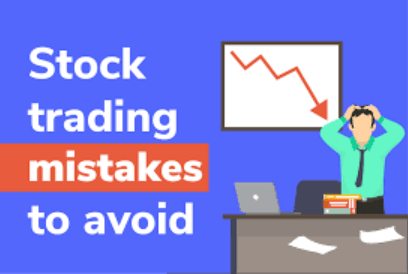Mistakes to Avoid When Learning How to Trade

Learning to trade can be an exciting journey. It promises the charm of financial independence and the thrill of the markets. However, it’s also filled with pitfalls that can lead to massive losses if you’re not careful. To help you understand this complex field, let’s explore some common mistakes many new traders make and how to avoid them.
Overlooking the Importance of Education
The first major mistake is underestimating the importance of proper education. If you’re wondering how to learn trading, you’ve come to the right place. Trading is about just buying low and selling high. It involves understanding market trends, financial statements, and technical analysis. Without a solid educational foundation, you are essentially gambling. Learning to trade effectively requires a commitment to staying updated with market developments.
Ignoring Risk Management
Risk management is crucial in trading, yet many beginners ignore it. They might invest too much in a single trade or fail to set stop-loss orders, which can protect them from significant losses. Always determine how much capital you will risk on a single trade to avoid this mistake. A good rule of thumb is never to risk more than 1 to 2% of your trading account on any trade. This approach helps preserve your capital and keeps you in the game longer.
Not Having a Trading Plan
Having a trading plan is similar to having a roadmap. Without it, you’re driving blind. A trading plan outlines your goals, strategies, risk tolerance, and evaluation criteria. It serves as a guide to keep your trading disciplined and objective. Remember, successful traders rely on their plans rather than their emotions. Ensure your plan is detailed and follows a structured approach to different market conditions.
Overtrading
Overtrading is another mistake that can drain your resources and energy. New traders often feel the need to be constantly active in the market, leading to excessive trading. Overtrading not only increases transaction costs but also heightens the risk of losses. It’s crucial to recognize that not every market condition suits trading. Sometimes, the best action is no action at all.
Failure to Keep Emotions in Check
Emotions can be a trader’s worst enemy. Fear, greed, and overconfidence can cloud judgment and lead to poor decisions. It’s essential to develop emotional discipline. It’s natural to feel upset when a trade goes against you, but reacting emotionally can compound losses. Similarly, overconfidence can lead to reckless decisions after a few successful trades. Always approach trading with a level head and stick to your plan.
Neglecting to Review Trades
Neglecting to review your trades is like driving with your eyes closed. Here’s why and how you should review trades:
- Reviewing past trades helps you understand what worked and what didn’t.
- It allows you to learn from your mistakes and refine your strategies.
- Keep a trading journal where you document every trade, including its rationale and outcome.
- Regular review sessions can provide invaluable insights and help you grow as a trader.
Read also: Blockchain Development
Inadequate Diversification
Putting all your investments in one place is a recipe for disaster in trading. Inadequate diversification can lead to significant losses if a single trade or market sector performs poorly. Diversify your portfolio to prevent the spread of risk across different assets and sectors. This approach mitigates risk and increases your chances of achieving steady returns.
Do you often wonder how to learn trading? Successful learning involves more than understanding market mechanics. It requires a strategic approach, emotional discipline, and a commitment to continuous learning. Remember, the ultimate goal is not to make quick profits but to develop sustainable strategies that yield long-term success.




